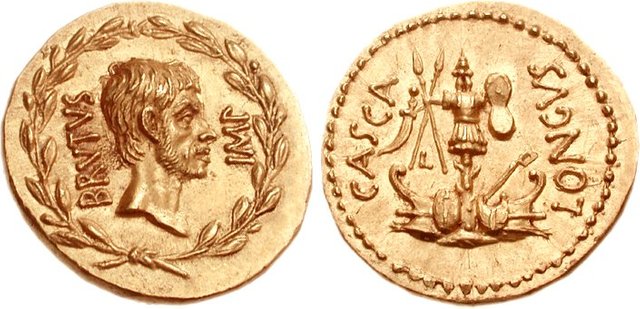Sermons You'll Never Hear In Church - First in a New Series
Welcome to a New Series.
I call this series "Sermons You'll Never Hear In Church." From time to time, I hope to publish one as God supplies the ideas and the courage.
These are bible truths that somehow have been overlooked by every pastor and preacher I've ever come across. If it should happen that you have heard one of these sermons in church, please do share a report?
"It is a poor sermon that gives no offense; that neither makes the hearer displeased with himself nor with the preacher."
- George Whitefield -
Why aren't these sermons being preached?
As you read and consider each sermon, I'll leave it up to you to determine why. However, I have two competing theories as to why you've never heard these sermons before. I think the most likely reasons are ignorance and cowardice.
When it comes to preachers and preaching, neither reason is particularly complimentary. There may be other possible reasons. If you think of one, we would love to hear from you.

Heard any good ones from the pulpit lately?
Image courtesy of Dean Moriarty and http://pixabay.com
I'm going to share one of Jesus' sermons with you.
If you've ever read the bible, you may have heard, but glossed over it. Maybe your preacher never pointed it out?
For contrast, I'll first mention Jesus' most famous "tax sermon" that you have heard a million times. I am of course referring to
"Render Unto Caesar!"
Remember that one? Of course you do. If you've ever warmed a pew, you've undoubtedly heard that sermon.
"Render Unto Caesar" is a very popular sermon come early April in the United States. It is often repeated throughout the year, just to keep everyone primed for the next tax terrorism season. And while I'm less sure about the timing, I know that "Render" is also preached in countries all around the world.
What makes it so popular?
The organized church, as an institution, generally tends to toady, or "suck up," to governments. In order to avoid or minimize persecution, preachers all too often take a "sound bite" from something Jesus said and misrepresent its meaning.
But that's a sermon for another time. Let's get right into today's sermon, based squarely on things that Jesus said.
"Tax Collectors Are Mentally Ill, and Ought to Quit"
Jesus said what?
I know, I know... you've never heard this sermon before. So, listen up.
Jesus had been preaching all around Galilee.
When he came across Levi, a publican (i.e. tax collector), seated in the tax collection booth, Jesus said "Follow me."
"After this he went out and saw a tax collector named Levi, sitting at the tax booth. And he said to him, “Follow me.” And leaving everything, he rose and followed him."
- Luke 5:27-32
Levi left everything behind.
He abandoned his career as a publican. He never looked back.
When he later threw a dinner party for Jesus, many of Levi's tax-collector friends were also invited.
This drew the critical ire of the Pharisees. They asked why Jesus would eat with "tax collectors and sinners."
"And the Pharisees and their scribes grumbled at his disciples, saying, “Why do you eat and drink with tax collectors and sinners?”"
- Luke 5:27-32
In those days, tax collectors were deeply despised. They were considered mercenary traitors, which, in all truth, they were. There was definitely something wrong with them, a mental and moral flaw.
Jesus said as much:
"And Jesus answered them, “Those who are well have no need of a physician, but those who are sick. I have not come to call the righteous but sinners to repentance.”"
- Luke 5:27-32
Jesus said that tax collectors were sick. He said they were unrighteous sinners. He condemned their occupation. He called on them to repent, to leave what they were presently doing.
The tax man is universally hated.
Endless books have been written. Countless dramas and movies have been made. It was true in Jesus' day. It is still true today. Among the most despised professions in the world are politicians, lawyers, and especially tax collectors.
Why is that?
We despise tax collectors, lawyers, and politicians, because, deep in our heart of hearts, we know that these are dishonest occupations. We know in our bones that there is something terribly wrong with human government as we know it.
God has built the one, true law, his law, into our hearts and minds. We know that it is wrong to steal. We know that force initiated by human government violates God's second greatest commandment, ‘You shall love your neighbor as yourself.’
You can dress it up with any kind of fancy language.
You can say "It's OK if 'government' does it."
You can insist government only wants us to "Pay our fair share."
You can say "It's for the public good."
Any way you try to dress taxation in sheep's clothing, it is still the wolf of theft, robbery, and extortion. It is still backed by murder.
Taxation is theft,
pure and simple. It is immoral to take money and property by force.
IRS and treasury agents ultimately collect "taxes" at the point of a gun. Politicians pass "laws" whose ultimate result is the murder of "citizens" who refuse to voluntarily "comply."

Roman Coins
Image courtesy of Classical Numismatic Group, Inc. CC BY-SA 2.5
Later on in the gospel accounts,
we see Peter, John, and others plying their old trade again as fishermen. We even see Jesus guiding them to improve their craft.
Have you ever wondered why we never see Levi, or Matthew, or Zacchaeus, return to tax collecting?
It is because taxation is a criminal activity.
Jesus called on the tax collectors to repent of their evil deeds, and they did.
When, for example, Zacchaeus repented — when he quit and left "the profession" behind, promising to make reparations — Jesus pronounced "salvation has come to this house."
What about John the Baptist?
Some have made a big deal about his response to the tax collectors who came for a baptism of repentance. They assert that John did not condemn the occupation itself.
Such a conclusion is unwarranted.
John's reply was “Collect no more than you are authorized to do.”
It is quite evident that, because the publican's only source of income was to "collect more than authorized," that would be tantamount to working for nothing.
You do the math.
How long would you continue working for nothing?
Furthermore, the very next injunction given by John Baptist was to Roman soldiers. He told them “Do not extort money from anyone by threats or by false accusation...”

"In God We Trust" — All Others Pay Cash
Image courtesy of HealthWyze and http://pixabay.com
What's the bottom line?
Involuntary taxation, collected at the point of a gun for whatever purpose, is an egregious evil that Jesus condemned.
If Jesus condemned the practice, called it "sick," viewed those who practiced and supported taxation as "sinners," and considered them "lost," why in heaven's name would we persist in apologizing for it?
Why do we support governments in their practice of extortion? Why do we lend our support and credence to the criminal organizations that impose such evil on our neighbor?
"Bear fruits in keeping with repentance."
That's what John the Baptist said to the tax collectors.
I say, "Amen!"
~FIN~
LOOK! Check out our amazing product:>>CLICK HERE!<<
You are why I'm here on Steemit!
I have very eclectic interests and hope, over time, to write about them all.
⬇️To Check Out @creatr's World⬇️CLICK Each Image Below⬇️

|

|

|


Interesting take on these passages, my friend.
It's difficult sometimes to pierce the veil of centuries, various translations and world-views and come to an exact meaning of scripture. Added to the above is our own personal biases that we always struggle with that hamper our judgments.
But I can't be so partial, @creatr, despite the great respect I bear you, to overlook certain aspects of your dissertation.
when you say, We despise tax collectors, lawyers, and politicians, because, deep in our heart of hearts, we know that these are dishonest occupations. We know in our bones that there is something terribly wrong with human government as we know it, I believe that is you talking, but you don't speak for "everyone" and that is most certainly not my take on the matter.
When you go on to assert the local churches are colluding with this 'evil' system of government I must again respectfully disagree.
I agree that the Jews hated tax collectors, but they saw them as aiding the Romans who were the Great Satan who unlawfully occupied their land. They had no problem giving tithes to Levites or the Temple or their own rulers.
If you lived in a theocracy, were born into it, you might have cause to rail against a system that forced you to pay tithes and imposed their moral code upon you.
I suppose what I'm saying is that the views you are propounding here go beyond the text at points and are based on conclusions you have made. The scriptures tell us that unscrupulous tax collectors repented--they don't say, because collecting taxes is morally reprehensible and government is bad. You say that, my friend.
I love your insights when you delve into treasures from the original, but I can't go so far as supporting your own conclusions that go beyond the text.
I have no bunghole!
John, my friend,
I thank you for taking the time to read my diatribes. I also thank you for your ever honest and open responses.
I always accept your reproofs in the kind spirit in which you present them.
Nor do I expect you to. And I also bear you very great respect, my friend.
While I believe that I am not going beyond the text from the perspective of a global, holographic view of the bible in its entirety, it has taken me the bulk of a lifetime to "see" the whole text in this way. I fully understand that, in a brief and polemic sermon like this, I have not "connected all the dots."
I only pray that perhaps, over time, if you continue to kindly bear up under the agony of reading my polemics, some of the dots may become better connected - at least to the extent that you may better understand, though you disagree with, where I am coming from.
Thank you for your friendship, expressed so well in your open response to my writing! :D
Hi creatr,
I was thinking you might write a post, from a Christian frame of reference, detailing your journey through the political system to where you are now. I know my time spent in apologetics changed me and the way I view the church and faith in general. Some journeys are roads taken where you don't come out at the end where you were at the beginning. BTW, you know I agree with you on the fundamentals, it's just that the non-essentials are so damn debatable!
...and you probably disagree with that because to you they're so important :)
I actually began (and have left dormant) a series of articles about my long journey to agorism...
They are indexed in my Library... And I do need to go back and finish that series... ;)
And no, I don't disagree at all... In I Corinthians 15, Paul lays out the importance of a hierarchy of significance! :D
I'm glad we're united on the fundamentals! ;)
I do recall reading a few of those, but I know you worked as a speechwriter for someone whose name eludes me :) I wonder how that impacted your views of politics
I think you may be misremembering. The only speeches I've ever written have been my own... ;)
okay, you worked on some politician's campaign - you were surprised I didn't know his name
Ah, now I remember our conversation...
Yes, I blogged extensively for Ron Paul.
Reading your posts always makes my inner anarchist come out!
Hahahahaha! I hope you consider that a good thing; I certainly do!
Getting to a fine point, I am actually not literally an anarchist, but that is the word that most closely describes me to the world. More literally, I would be a thearchist in that I believe that Jesus/God alone has the right to rule me (or anyone, for that matter).
I simply entirely reject the notion that any human being or group of human beings other than Jesus has any right to command me against my will.
Thanks for visiting and commenting!
Yeah, it's a good thing. Actually, I like your term better: thearchist. I really think Jesus was talking about an actual, literal kingdom when He said, "The Kingdom of God is at Hand."
Plus, philosophically I'm a big believer in the non-aggression principle, which if followed consistently can only lead to anarchism. (from an earthly perspective)
There's times when I'm more of a minarchist, though, because I don't see much chance that people like you and I will convince the rest of the world that voluntary interaction is the only way to go, and I don't see any convincing reason to assume Jesus is coming back any time soon. So, we still have the problem of the people who WANT someone to rule over them, and the psychos who want to do the ruling.
I enjoy hearing your perspective on it, though. You're in my "echo chamber."
Thanks, friend.
Yes, I too believe that Jesus' kingdom is quite literal, and quite presently active.
I also can't begin to predict when Jesus may return, though I absolutely believe that he will and that his return will be the event of the ages...
Yes, people foolishly wanting a RULER is the great problem of humanity. It surely does create a great vacuum that pulls in all the opportunistic psychos, more than happy to oppress us all.
I see no need for minarchy; perhaps I'm an optimist, but I hold out considerable hope for the effective use of blockchain technology to free us to a great extent from banksters and from guv'mints, giving us fully distributed / democratized means of coordinating voluntary action.
Thanks for interacting! :D
Another great post @creatr! When people bring up that God says to render to Ceaser what is Ceaser's, they don't realize that Jesus was holding a Roman tax coin and that He was basically saying, "Give this debunk currency back to Ceaser."
However, there is a legitimate tax God allowed for governments. It was the head-poll tax commanded in God's Law. It was only one shekel a year per 20y/o male. That's pretty limited to what we have now.
Greetings, friend,
Thanks for mentioning the poll tax, that's something I could surely use some more reading on. In fact, because you brought it up, I discovered this excellent article.
What perhaps you may have missed is that Jesus pronounced the end of all governments but his own. This means that the "governments" we see today are all pretenders to a right to rule, and part of the global rebellion against "the Lord and against his Anointed."
In simpler terms, no human being or group of human beings has any right to rule other human beings, which also logically excludes the supposed power to coercively tax them.
A government that is against Christ's own Kingdom is only a state that does not recognize him as Law Giver. Thus, if the government is in submission to God's Law, which is also Christ's Law, then it has the right to do what God's Law commands it to (Poll-Tax).
I agree with the basic premise; a government that rebels against Christ has no right to any tax, because you cannot follow God's Law in part.
God has built the one, true law, his law, into our hearts and minds. We know that it is wrong to steal. We know that force initiated by human government violates God's second greatest commandment, ‘You shall love your neighbor as yourself.’
This ^
While I understand the reason why some leaders would harp on the "render unto Caesar" quote, I don't see it as an order by the church to pay your taxes. I think it was a way to sort of side step an issue and focus on the basics of what Jesus was trying to teach. Just as we need to crawl before we could walk. We weren't ready for the revolution that would be created by not paying taxes. Furthermore, it wasn't/isn't necessarily in the beat interest of the people to do so. If you are taken hostage by an entity that has a proven history of enacting violence on those who don't comply, it is somewhat irresponsible for me to tell you not to comply without at least giving you a course of action that lessens your chances of suffering. I think it's better to teach people how to listen the laws already placed "into our hearts and minds". We have to understand the reason why it's wrong according to tgat law first, before we can act in our humanly capacity. At least that's my thought on the matter.
I think you have made a very astute observation here. And yes, I have some misgivings about simply saying "don't pay taxes," because of all the resulting troubles.
My purpose with this article and others like it, however, is to shake some people up. To expose them to ideas that are so far from what mainstream Christianity has become that they might actually begin to think for themselves rather than just "go along to get along" with everyone else.
Leaders quote "Render" all the time because they are part of the "state church," the church that has sold its soul to human government. It's a truly sorry state of affairs...
Thanks for your very thoughtful comment! :D
Oh, I totally agree. I wasn't saying that we as Christians shouldn't bring to light the evil of taxes. I was just trying to give my own assessme t of what was going on with the "render" passage. I think if someone had pressed Him, He would have said something like "Hey, them forcing you to pay taxes is wrong, ok. And in time, it will be taken care, but first you have to focus on yourself and the barriers YOU put between yourself and God."
Thanks for the perspective. I enjoy reading you because you do come at things from a different angle. It's thought provoking, and that's a great thing.
Thanks, friend... I appreciate the encouragement.
And, one of these days, I'll write the "What Jesus Meant When He Said 'Render'" sermon... ;)
interesting read Creatr. I get it. If we truly had freedom of religion would we pay taxes? Perhaps not. But there have been some well known Christians go to prison for not paying taxes. I believe you can choose to not pay taxes however your forfeit social security and a driver license for doing it. And folks who do it are watched and harassed by our government. There have been a few who have had to separate themselves from the world and live from hand to mouth to do so. sad. I appreciate the distinction between the fishing occupation and the tax collector.
It has been my belief that if you have to pay taxes on it you do not truly own it. I own my blue jeans. I pay one fee on them and they are mine. However we all pay taxes on our house and our income. It is not ours. Again if I have to pay taxes on it I do not own it. And then we have the 'fees' in America that are masked as a tax. Clever. Often when they bring a tax in it is just temporary. And then it becomes permanent Great post. Yes The churches shy from some topics because the pastors want to be politically correct. I am sick of PC and appreciate men and women who are fearless and will take a stand! BTW I put up a few new posts tonight. Again thanks for a great post. - Troy
Thanks, Troy, for your (as usual) thoughtful comments.
Very insightful, absolutely logical, and utterly obvious; yet most are afraid to even say or acknowledge this truth.
This is but one example of why I say we live under tyranny and it is only propaganda when we are told this is a "free country." It's free only until you deviate even slightly from the broad road of "voluntary compliance."
Land of the fee, home of the slave...
So true! Freedom is just another word for nothing left to loose. A whale wrote a post several weeks on the subject of freedom. How you are not free until you rid yourself of the chains of this world completely including all material goods. Most folks would not do that to be free. God offers us freedom but we need to rid ourselves of the chains of this old world as well to be free. Again most folks will not do it. Thanks Creatr.
This is a very interesting interpretation @creatr. :c)
I am looking forward to seeing more instalments over time.
Some taxes are more evil than others - with inheritence tax being the most evil of all (a tax upon all that which has already been taxed in the life of the departed).
As with many concepts, I am not inclined to consider a 'tax collector' to be inherently evil. Yes the tax collection that we know leans towards the evil because the taxes collected for are themselves exorbitant and as honestly handled thereafter as any "charity's" monies.
The truth is that there is a level upon which governanc should operate to enrich the lives of the people - and it is in service to the people that it should collect the resources necessary to do so in sustainable fashion.
Again - regarding government and even politics as not being inherently evil. It is the renditions that we know that are conducted so - they 'can' be instruments for good.
Thank you again @creatr. :c)
Hello @pathforger,
I appreciate your visit and your thorough and responsive comment. Nevertheless, I'll respectfully disagree with you.
Human governments are an aberration. As I've mentioned in my article, human government as we know it inherently violates the second great commandment. For this reason, whether they are consciously aware of it or not, I will continue to maintain that individuals in professions that support and continue this aberrant institution are in fact in violation of the commandment. They need to recognize that they are acting immorally, denounce, and depart from such anti-social occupations.
I don't know if you noticed, but throughout the article I have embedded links to quite a few supporting sources, including scripture, historical material, and political/philosophical essays. Some of that supporting material explicitly addresses issues that you have raised.
No "government" based on the theory that it has authority to initiate force can ever hope to be an instrument for good.
There are completely voluntary ways to organize society that do not involve the evils of "governing." These are what we should be working towards.
Thanks again for interacting!
Hello @creatr. You are welcome.
I can certainly appreciate where you are coming from.
I quite appreciate that you started this series with the intention of bringing rarely-referenced elements of scripture to light - which thus brings about a shift in perspective over the proper interpretation of the overall stances on various subjects.
Yes I did notice the links that you very kindly enriched your texts with - and while I did do a little bit of delving - as you may have understood - my words were not an attempt to present a representation of the matter from a Christian perspective.
Rather I chose to delve past that which is said, straight to the matters concerned - in this case of taxes, tax collection, and governance - and opined that there is no inherent reason why any of these have to be evil. Doing so requires setting aside the track records of all three phrases - as the implementations that we have suffered have been flawed at best - plus I do not discount the roots of the rise of these constructs within a base desire for control, power and gain.
While I personally do not generally deal in absolutes - I recognize that such is not generally compatible with religious discussions. As such I feel that we shall need to remain in respectful disagreement.
Again, thank you for a fine article.
This post has been ranked within the top 80 most undervalued posts in the first half of Aug 20. We estimate that this post is undervalued by $8.28 as compared to a scenario in which every voter had an equal say.
See the full rankings and details in The Daily Tribune: Aug 20 - Part I. You can also read about some of our methodology, data analysis and technical details in our initial post.
If you are the author and would prefer not to receive these comments, simply reply "Stop" to this comment.
Hello @creatr
Your post will be featured on God-Waves today on MSP-Waves Radio from 9 pm UTC (time.is/utc). If you would like to come on the show, please contact me on discord.
Stay Blessed.
Hello friend @globocop,
Thank you for your interest.
I've looked for you on discord but can't seem to find you? What is your username there?
Hello brother, it's @globocop Here is an invite to the show server. https://discord.gg/
Thank you... Looking for you there.
Hello @creatr,
An interesting response to that segment of scripture. Though I agree in part with your conclusion, the targeting of the tax collectors and their taxes as being the origin of the issue pursues a conclusion In a different manner than I would. Jesus' insistence that the tax collectors are "sick" does not necessarily preclude any others from that sickness. His retort was primarily a rhetorical play to show the Pharisees His true purpose, which was to seek out the sinners and not those who already believed themselves justified (though in reality even the Pharisees still fell short: Matthew 5:20) In reality we all fall into that category of individuals who are in need of the physician's work to which Christ refers. Jesus' choice to spend His time with the tax collectors was a display of the breadth to which His grace will extend. He frequently goes out of His way to show kindness and love to those who are considered the lowest in society. (See: John 8:1-12, Matthew 8:1-4)
I agree with @johnjgeddes that you may read a bit of your own opinion into this text. Tax collectors were the face of the Roman oppression. The average Jew was quite resilient to Roman rule. This is why Jesus' concept of a "kingdom not of this world" (John 8:36) was not as attractive to the Jewish population who, for the most part, were awaiting a military coup from their "messiah."
John's words further this point in that they imply that the tax collectors were taking more than that which they were authorized too. This does not mean that the Roman government paid them nothing. However, it did mean that a tax collector could easily demand more than that which was owed to the government so that he might pocket the remainder. This could be done because that which was owed by the Jews was likely not well known by the taxpayers themselves.
The reference to the soldiers in Luke 3 is extraneous as John's reprimand would be appropriate for any army occupying another nation. If that means that foreign military occupation by empires is wrong then I will gladly agree. But that does not mean taxes are sinful.
However, Jesus' comments regarding Caesar do make a simple statement on government issued currency. His statement reflects a similar concept from a passage in Ecclesiastes: "All are from dust and to dust all return" (Ecclesiastes 3:20). These both describe the tendency of things to return to their origin. In this way, Jesus is merely saying that it is natural for the Roman's to demand back that which they created (in this case money). Therefore, we can conclude that to avoid the plague of taxes we must simply abandon governement backed currency. As a crypto currency investor I cannot help but view this as a biblical endorsement of Bitcoin, steemit, and the new economy we are creating.
I have one final note I believe is always important to bring up in regards to this passage of scripture. Jesus' response is "Render to Ceasar the things that are Ceasar's, and to God the things that are God's" (italics added, Mark 12:17) That second half of that passage is crucial and the Pharisees reveal their hearts in that they do not pursue it by asking: "How do we know what is God's?" Because the natural response to this would have been for Jesus to ask "What image is on you?" Which undoubtedly refers us to the passage in Genesis in which man was made in God's image (Genensis 1:27) So just as it is natural for Ceasar to demand back that which has his image on it, so to is it natural for God to demand everything of we who act as His image bearers on earth.
So sorry for the long response. I genuinely enjoyed the article and truly appreciate the opportunities for intellectual engagement that your work provides. It is always a joy to dig into Jesus' words, which can contain so much, with others who are just as excited about pursuing truth. Grace and peace to you.